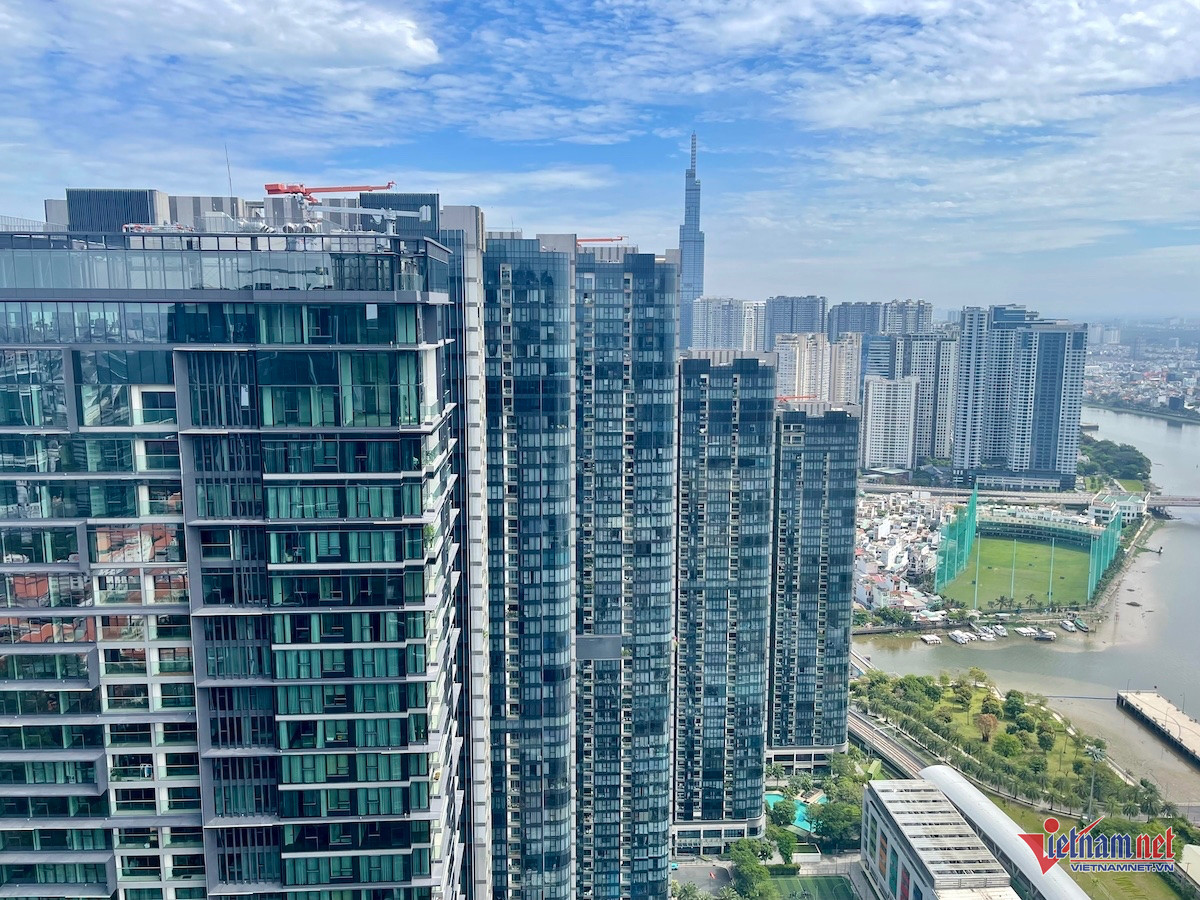
This weekend, Hoa and a group of friends will fly from Hanoi to HCM City to attend a concert. The trip was arranged many days ago, and Hoa booked an apartment in a Thu Duc City condominium for VND1.5 million per night.
Hoa explained that her group of five would incur higher costs if they choose to stay in hotel. Given the short stay and their preference for a comfortable space, they chose to rent an apartment.
The apartment owner specializes in renting his apartment to tourists. To secure the two weekend days, she booked three months in advance and paid a deposit. However, she is worried due to a recent HCM City People’s Committee regulation banning the use of residential apartments for tourism rentals.
"Previously, whenever I traveled to HCM City with friends, I preferred renting apartments in condominiums over staying in hotels. Besides the comfort and ability to cook, it saved us a considerable amount of money," Hoa said.
With the new regulation, Hoa is uncertain whether the apartment she booked qualifies for tourism rentals. She also wonders about temporary residency registration and whether the building management will pose difficulties.
Khanh, who owns an apartment for rent in a condominium on Ben Van Don Street in District 4, said he has been informed about the ban on using residential apartments for tourism rentals. The demand, primarily from foreign tourists, for short-term rentals in the area is high.
To reach customers, Khanh advertises his apartment on Airbnb at the rate of VND1.7 million per night. Due to its competitive pricing compared to hotel rooms in the same area, his apartment is consistently booked.
"Many apartments in nearby condominiums are rented. This type of business is well-suited to areas near HCM City’s center, like District 4. Tourists mostly rent for one to three days," Khanh explained.
Regarding the new regulation, Khanh believes registering a business and paying taxes is not too challenging. However, he remains unclear on whether apartments designated for tourism rentals must be officetels or standard residential units in buildings classified as mixed-use.
Profit decreases anticipated
A representative from the management board of a condominium in Binh Thanh District stated that many owners in the building operate short-term rentals, resulting in a high volume of visitors, especially on weekends.
These guests use amenities like the swimming pool and gym as part of the owners’ commitments. Such activities place additional pressure on the management board, which must ensure security, cleanliness, and maintenance of equipment and facilities in communal areas.
The sharing of amenities has sparked conflicts between long-term residents and owners who rent their units for short-term tourism.
Tran Khanh Quang, a real estate expert, observed that short-term apartment rentals have become prevalent in HCM City in recent years, particularly in bustling central areas. The new regulation will undoubtedly impact investors.
Quang explained that the rental market is currently divided into two segments. The apartments with sale prices of VND2-3 billion per unit are unaffected by the new regulation, as this segment is suited for long-term rentals.
Meanwhile, investors in mid- to high-end apartments, priced between VND3 billion and VND5 billion per unit, will face significant challenges. These properties, mostly located in central areas, yield higher profits through short-term rentals.
For investors who lease apartments for short-term re-lease, Quang noted they will encounter difficulties. He estimated that, if operated efficiently, or if the units are usually full, this business model currently achieves an average profit rate of 5-6 percent per year. With the new regulation, they must shift to long-term rentals, reducing profit rate to 4-5 percent per year for some owners.
"For an apartment valued at VND3 billion, long-term rentals might generate VND13-15 million per month. However, short-term rentals via Airbnb could bring in VND23-25 million per month. In recent years, many investors have leased apartments at high rates and then subleased them short-term to profit from the difference. Now, with the new regulation, the apartment rental market will become highly competitive," Quang stated.
Anh Phuong